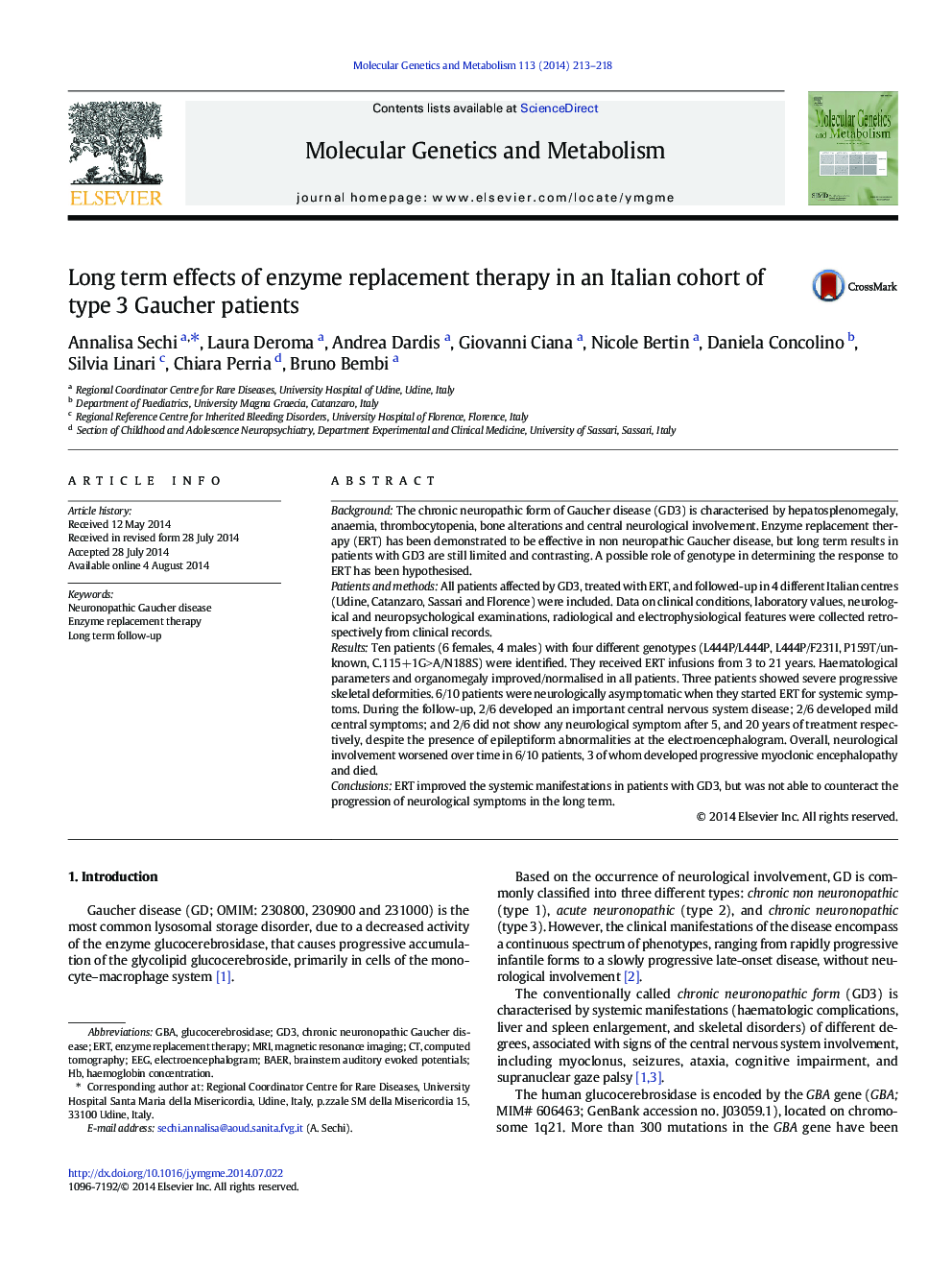| Article ID | Journal | Published Year | Pages | File Type |
|---|---|---|---|---|
| 1998223 | Molecular Genetics and Metabolism | 2014 | 6 Pages |
•This is the longest follow up described so far, regarding GD3 patients on ERT.•ERT improves the systemic manifestations of GD 3.•ERT does not prevent the progression of neurological symptoms in the long term.
BackgroundThe chronic neuropathic form of Gaucher disease (GD3) is characterised by hepatosplenomegaly, anaemia, thrombocytopenia, bone alterations and central neurological involvement. Enzyme replacement therapy (ERT) has been demonstrated to be effective in non neuropathic Gaucher disease, but long term results in patients with GD3 are still limited and contrasting. A possible role of genotype in determining the response to ERT has been hypothesised.Patients and methodsAll patients affected by GD3, treated with ERT, and followed-up in 4 different Italian centres (Udine, Catanzaro, Sassari and Florence) were included. Data on clinical conditions, laboratory values, neurological and neuropsychological examinations, radiological and electrophysiological features were collected retrospectively from clinical records.ResultsTen patients (6 females, 4 males) with four different genotypes (L444P/L444P, L444P/F231I, P159T/unknown, C.115+1G>A/N188S) were identified. They received ERT infusions from 3 to 21 years. Haematological parameters and organomegaly improved/normalised in all patients. Three patients showed severe progressive skeletal deformities. 6/10 patients were neurologically asymptomatic when they started ERT for systemic symptoms. During the follow-up, 2/6 developed an important central nervous system disease; 2/6 developed mild central symptoms; and 2/6 did not show any neurological symptom after 5, and 20 years of treatment respectively, despite the presence of epileptiform abnormalities at the electroencephalogram. Overall, neurological involvement worsened over time in 6/10 patients, 3 of whom developed progressive myoclonic encephalopathy and died.ConclusionsERT improved the systemic manifestations in patients with GD3, but was not able to counteract the progression of neurological symptoms in the long term.
